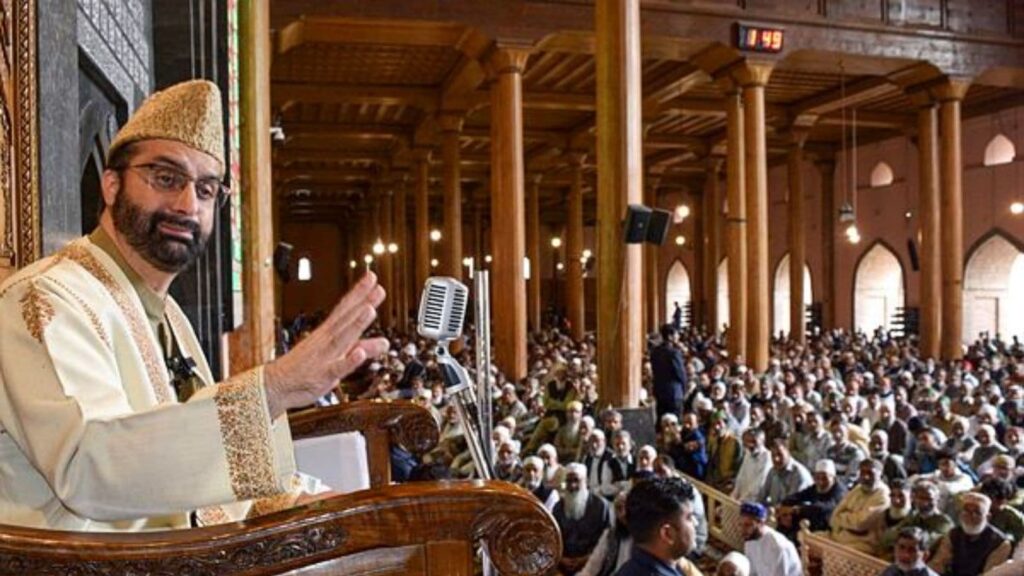Leading the Friday prayers at Jamia Masjid here, Mirwaiz Umar Farooq hoped that the situation between India and Pakistan, “getting worse by the day” since the Pahalgam attack, is resolved without going to war.
He also regretted the “vilification” of Kashmiris in some quarters after the attack that left 26 dead, and urged the Centre to “reconsider” deportations of those holding Pakistani passports following revocation of visas by India.
It was the second Friday in a row after the April 22 Pahalgam attack that Mirwaiz, the Valley’s chief cleric, was allowed to give his customary sermon at the Jamia Masjid.
In one of his strongest remarks on government actions in a sermon, since his release from a four-year house arrest after the 2019 abrogation of Article 370, Mirwaiz said: “The events unfolding after the horrendous Pahalgam incident have again shown that whenever such things happen, it is the people of Kashmir who bear the brunt and suffer. Despite their unanimous condemnation of it, people of Kashmir are being held to account and targeted.”
Many students and professionals had returned home to Kashmir from other parts of the country after facing “harassment”, he said. “How is all this helping in punishing the perpetrators, if that is the aim?”
Pointing to the deportations since the Pahalgam attack, after India revoked almost all categories of visas to Pakistanis, Mirwaiz said this is leading to “the division of families, with mothers being separated from little children and husbands from wives” in Kashmir. He mentioned the death of a paralysed 80-year-old Abdul Waheed Bhat on a bus while waiting to be deported to Pakistan.
“In Kashmir, it’s sorrow after sorrow and grief after grief that visits us,” Mirwaiz said, urging the Central government to revisit a policy “inimical to actual peace and stability in Jammu and Kashmir”, on “humanitarian grounds”.
Story continues below this ad
Mirwaiz also raised cases of alleged extrajudicial killings in the past, and questioned actions such as demolition of houses of relatives of militants, “rendering families homeless and desolate”. At least nine such demolitions have followed the Pahalgam attack, with parties which have otherwise offered support to the Centre in any action it takes against the terrorists also urging it to refrain from this “counterproductive” measure.
In his address, Mirwaiz addressed the ban on his party Awami Action Committee by the Centre recently, calling it “unjust and politically motivated”. “People know that this organisation has always stood for peace and reconciliation and understand that these are fear-building tactics. It would be better to win over people than to intimidate them into submission,” he said.
As the leader of the moderate faction of the Hurriyat Conference, Mirwaiz has always advocated talks.
On April 25, in his first Friday sermon after the Pahalgam attack – allowed by the authorities after the gap of a month – Mirwaiz had led a one-minute silence for the dead, and had condemned the killings as “shocking and chilling beyond belief”. He had also commented on how the people of the Valley had “opened their hearts and homes” for outsiders, while regretting the “communal rhetoric of hate” directed at Kashmiris.



